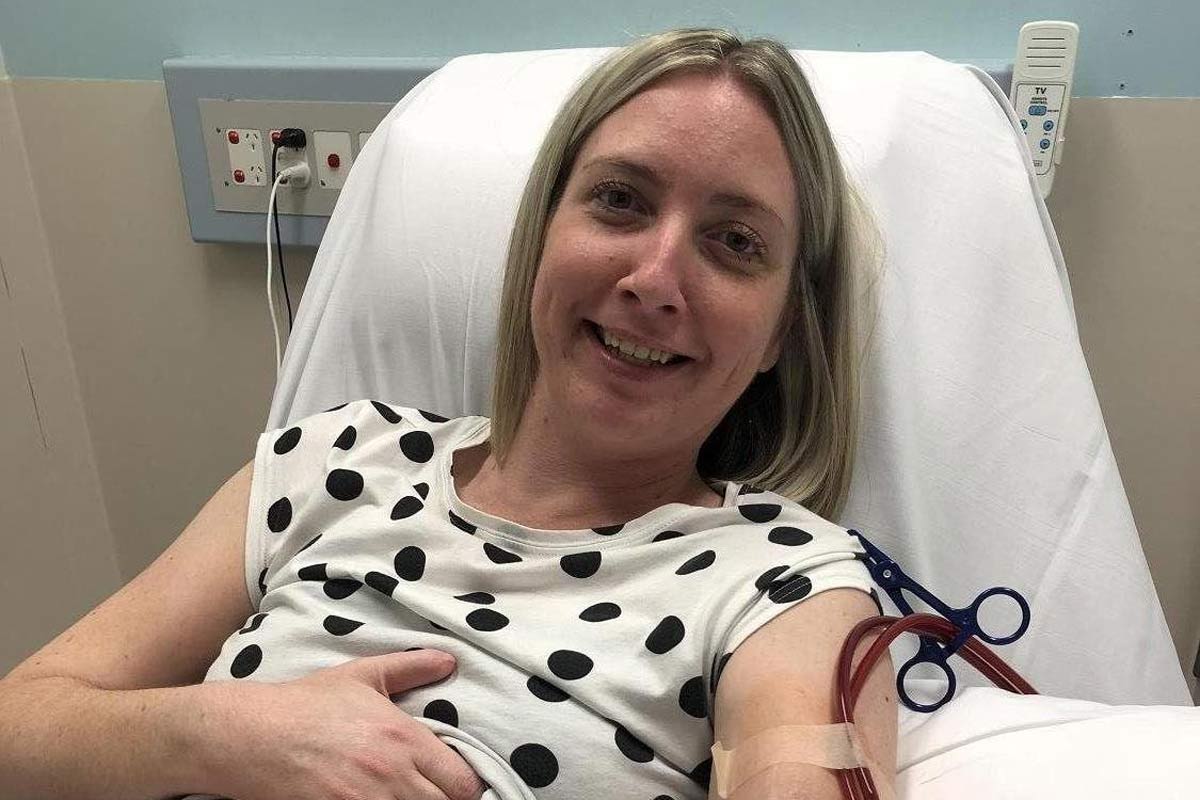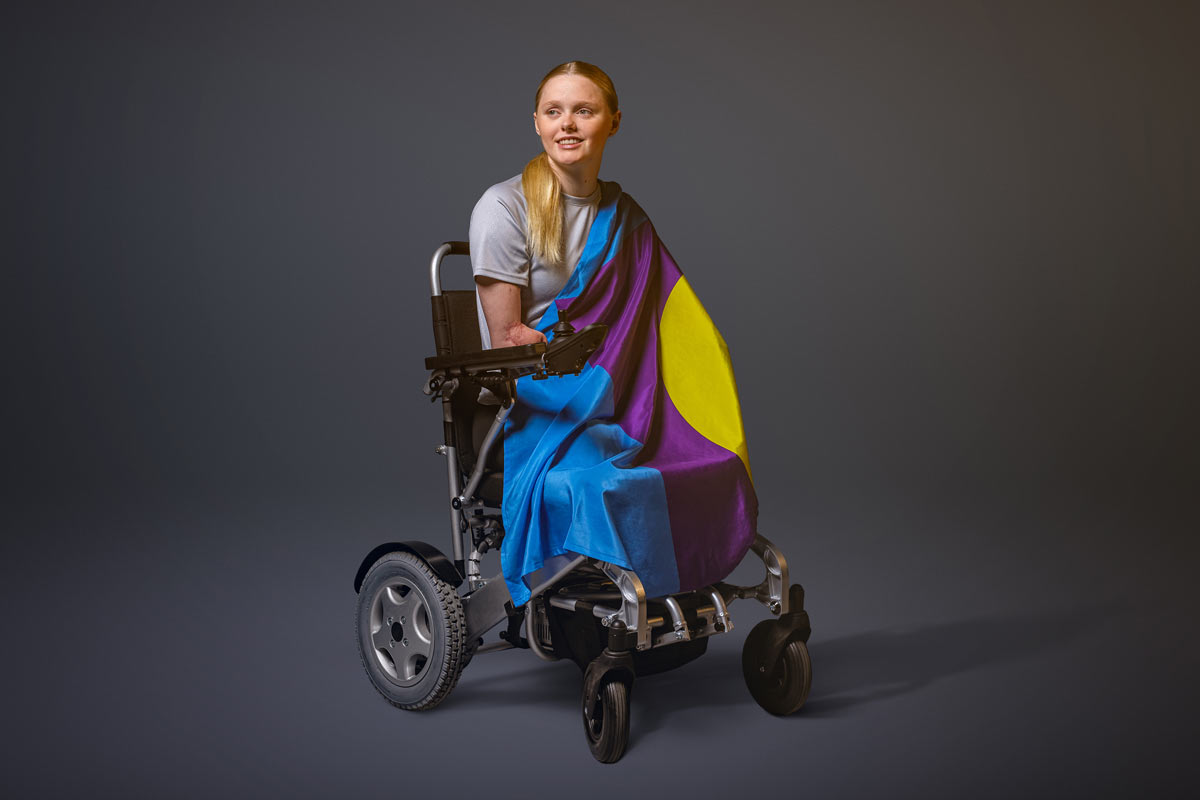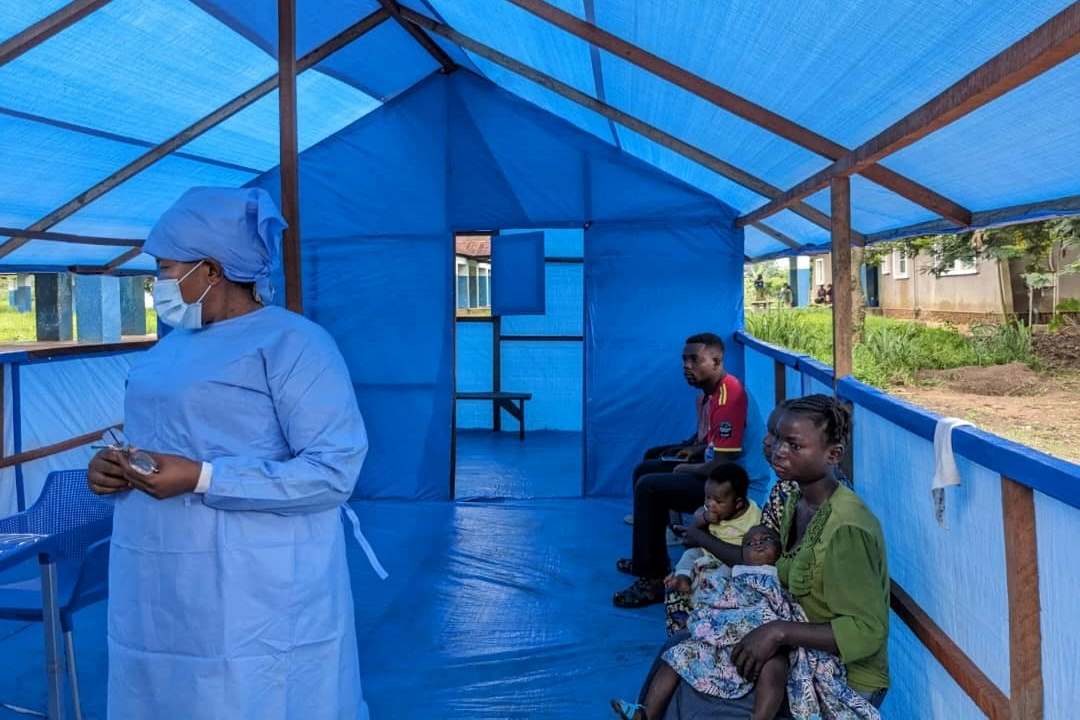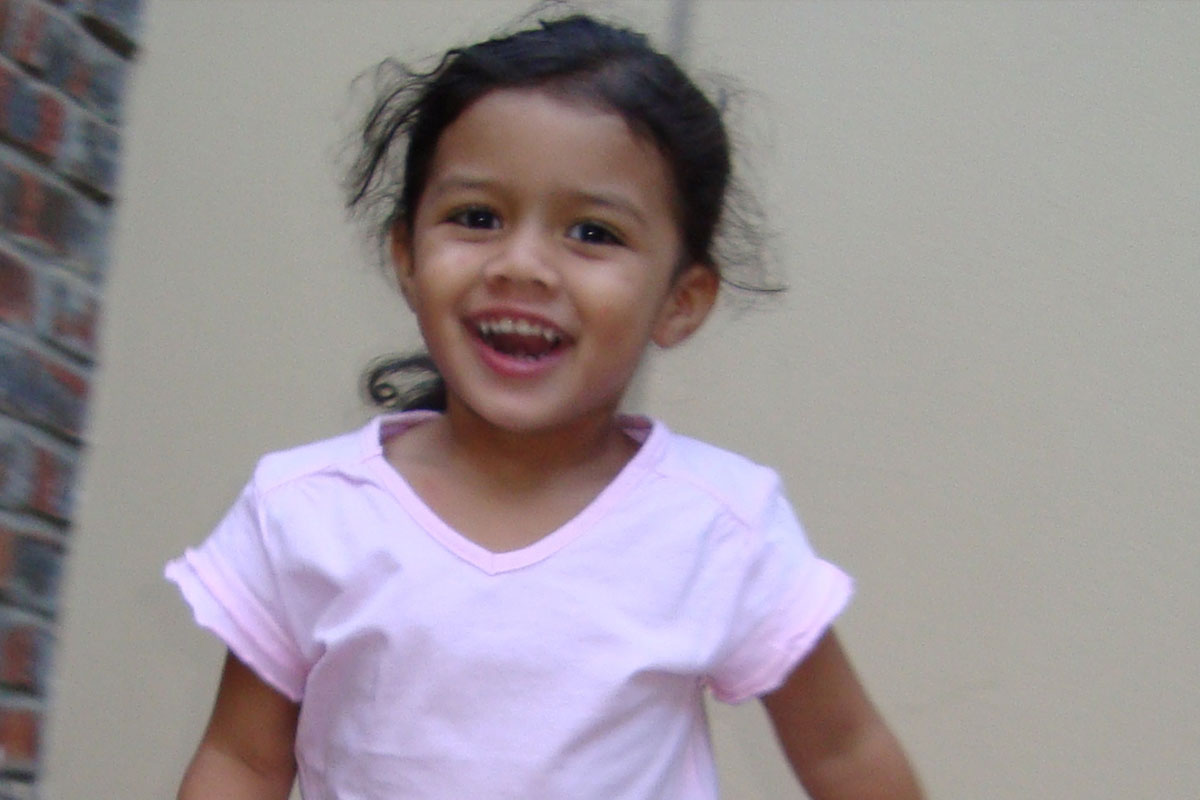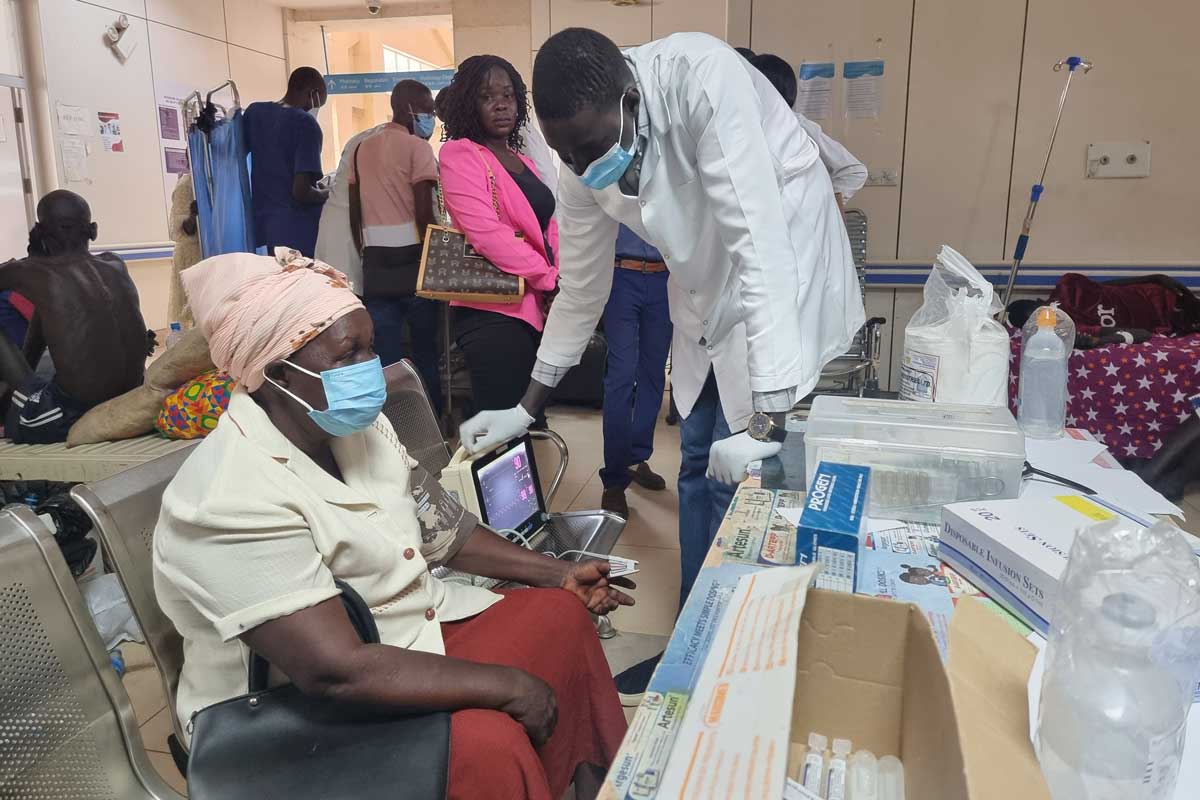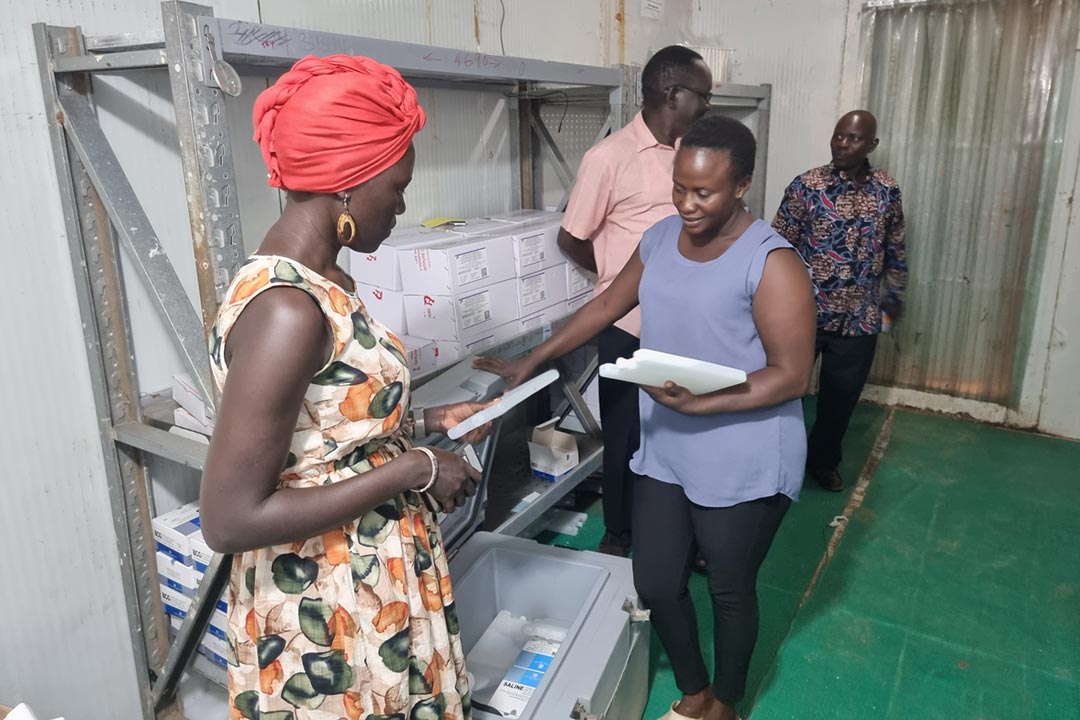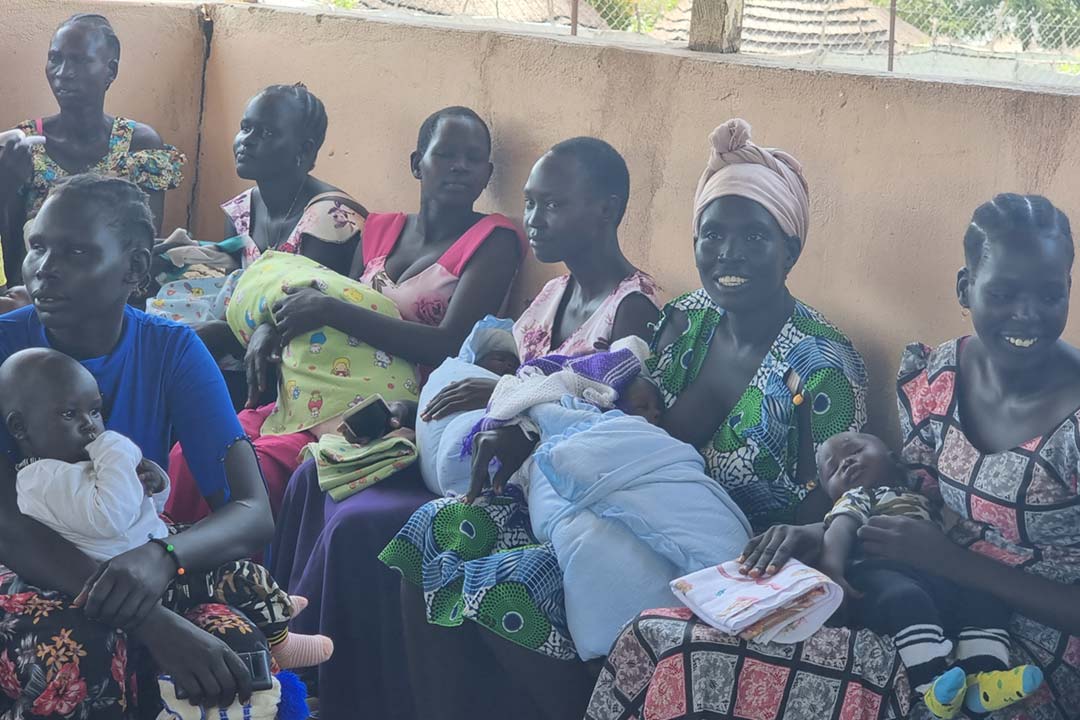South Sudan records positive uptake for malaria vaccine
“I am happy,” one vaccinator says, seeing mothers’ enthusiasm for the novel jab.
- 3 October 2024
- 7 min read
- by Winnie Cirino
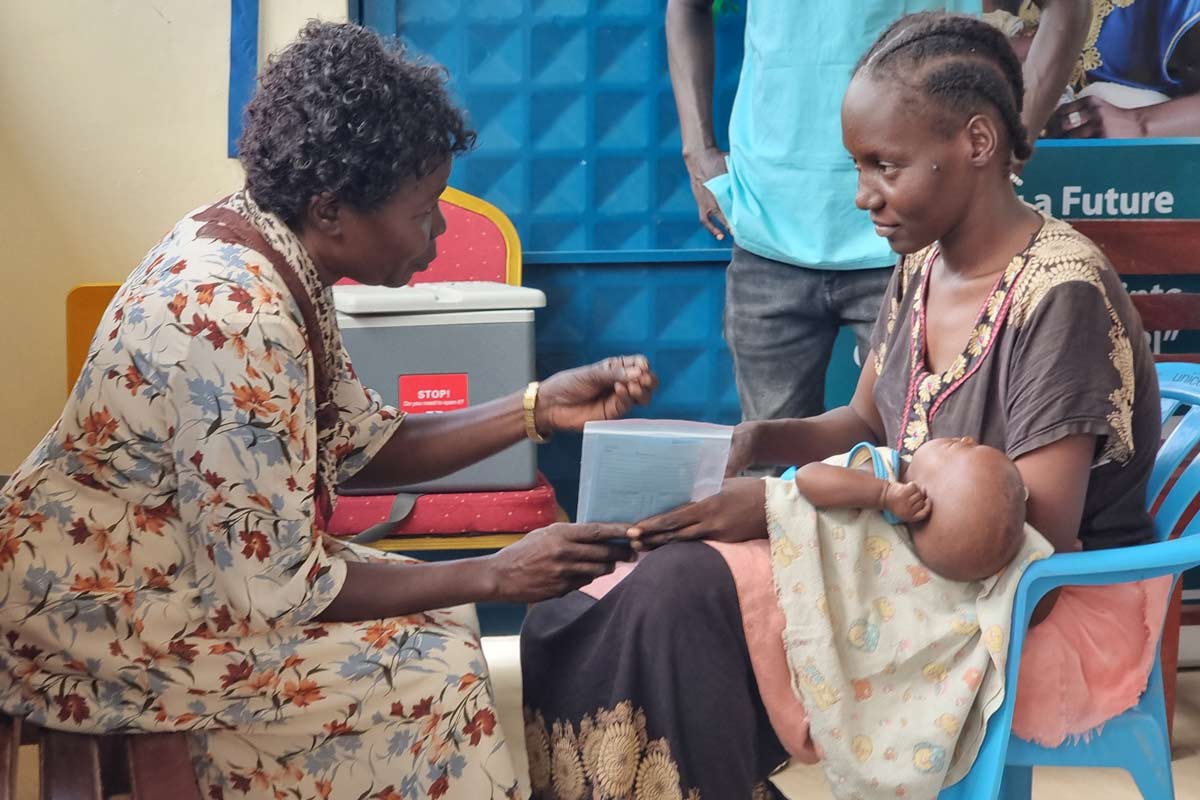
Public health experts in South Sudan say that the malaria vaccine has seen enthusiastic uptake since its introduction into the national immunisation schedule in mid-July this year.
John Elia, the deputy head for Expanded Programme for Immunization (EPI) activities at Al Sabbah Children’s Hospital, the country’s only dedicated paediatric hospital, shares encouraging statistics about the vaccine’s early reception.
"Since we started vaccinating on the 16th of July, up to the 30th, we vaccinated 239 kids. That is [in] 14 days.” The pace picked up from there: “Our tally indicates that we have vaccinated 214,000 children with the malaria vaccine until the end of August," Elia said.
“All my five children have been vaccinated according to the advice from the hospital. If I had the choice to give this child the malaria vaccine, I would do it, because I know it is for their safety. If my other children have stayed healthy because of the other vaccines, why not take this one too? If I have another child, I will ensure they receive all the necessary vaccines.”
- Stella Keji, a 38-year-old mother of five
Demand groundswell
Elia notes that the team is facing challenges with many mothers bringing children who are older than the target age group, hoping to get their children protected.
"You know malaria is a challenge to all; when parents hear that there is a vaccine for malaria, they bring their children for the vaccine. But the target is from 5 months to 1 year and 11 months," Elia explains. "But those of 2 years and 5 years are being brought, then we are turning them back, that is the problem now."
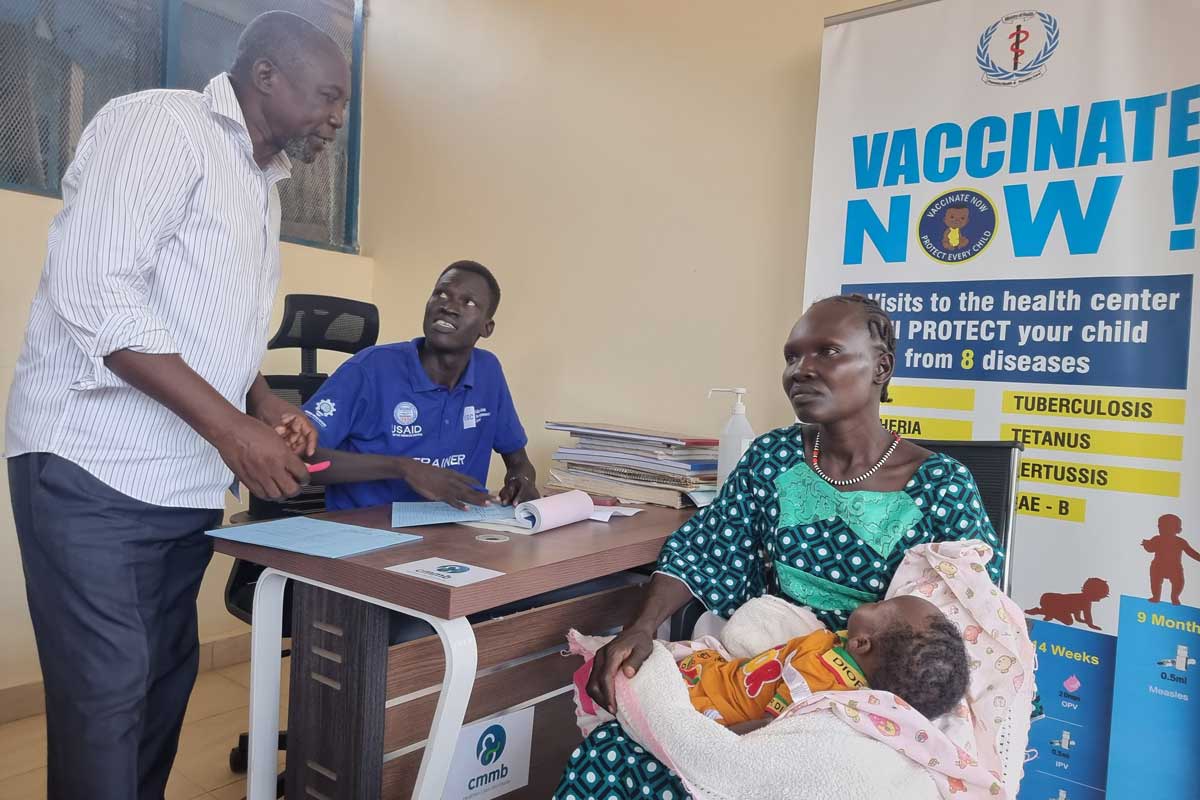
But Elia sees the development as a positive indicator of the community's growing awareness of the importance of vaccination.
"I am happy: this means the parents know the importance of the vaccine. It means that they know the vaccine is important for their kids," he said.
Living testimony
Lillian Gune, a 22-year-old mother of one, recently took her child to Al Sabbah Hospital for the second dose of the newly-introduced malaria vaccine. Gune first heard about the vaccine one Sunday on the radio, and took her child the following day to the hospital, without wasting time.
“My child often suffers from malaria. There was a time she was very sick. It started at night, and I had to wet towels to cool her body,” Gune recalls. “So when I heard about the vaccine, I went very early in the morning to the hospital and even found the centre was still closed, but I waited, and my child was vaccinated.”
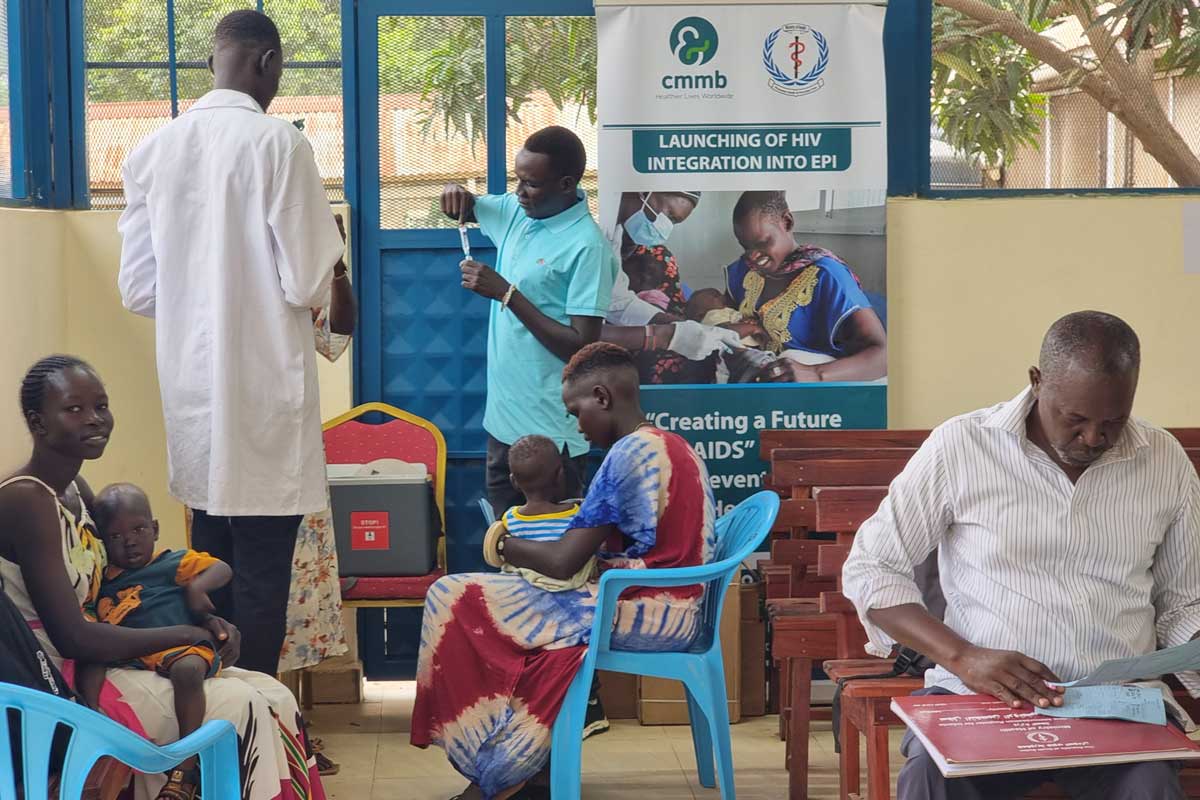
That night, after the first dose, Gune’s child developed a high fever. Although she was worried, especially as a first-time mother, she says she trusted the professionals and has since seen positive impact in her child’s health.
“I have come for the second dose because I have seen a lot of improvement on my child. Previously she would fall sick frequently, but since they gave her the first dose in July, she has never fallen sick till today.”
Gune says she feels she is a living testimony to the power of vaccines.
Her belief in vaccines is deeply rooted in her past experiences. Gune strongly remembers receiving a cholera vaccine when she was in school, ignoring widespread misinformation that it would have harmful effects.
“Many people said, the medicine was bad, that it would make people infertile, but being an orphan, I sieved the advice. So, I went and took the vaccine, and I have lived so well; until cholera went, I didn’t fall sick from it,” she shares. “So, I always remember that experience, and I will always vaccinate my children.”
Seizing their shot
Sarah, a mother of one, fled the Sudan war in early 2024. She had brought her child for the pentavalent vaccine, but while at the hospital, she was informed about the availability and importance of the malaria vaccine. Without hesitation, she agreed to have her child vaccinated.
"There are so many mosquitoes in Juba, and with all the potholes filled with water, malaria is very common here, compared to Sudan. So, I am completely fine with my child getting the malaria vaccine to prevent him from getting sick."
Stella Keji, a 38-year-old mother of five, had also brought her 2-year-old child for measles vaccine, which meant the child could not receive the malaria vaccine at that time. However, she expressed her commitment to vaccinating her future children against malaria.
“All my five children have been vaccinated according to the advice from the hospital. If I had the choice to give this child the malaria vaccine, I would do it, because I know it is for their safety. If my other children have stayed healthy because of the other vaccines, why not take this one too? If I have another child, I will ensure they receive all the necessary vaccines.”
“I take time to explain”
Victoria Elizia has been a vaccinator at Al Sabbah Hospital for three years. When parents bring their children for vaccinations, she briefs them thoroughly on the different vaccines, possible side-effects, and how to care for their children afterwards. Elizia notes that while some parents are excited, others feel worried, with some expressing concerns – some, she says, say that they have heard vaccines are tested on Africans.
"Especially with new mothers, I take the time to explain how the vaccines work and their importance until they feel confident. When I ask them to return for the next dose, they always come back. We have vaccinated many children with the malaria vaccine, and the second dose is progressing well. But many parents are complaining about what will be done for two-year-olds," Elizia explains.
She also addresses a common question: whether a child will be completely immune to malaria after the vaccine. “I always reply, malaria will affect the child, but it will not be as intensive like how it kills children,” she says, adding, “but I also always remind parents to continue using mosquito nets to protect their children.”
An important next challenge for health workers like Elizia will be to make sure each child finishes the full four-dose series of the vaccine, guaranteeing optimal levels of protection.
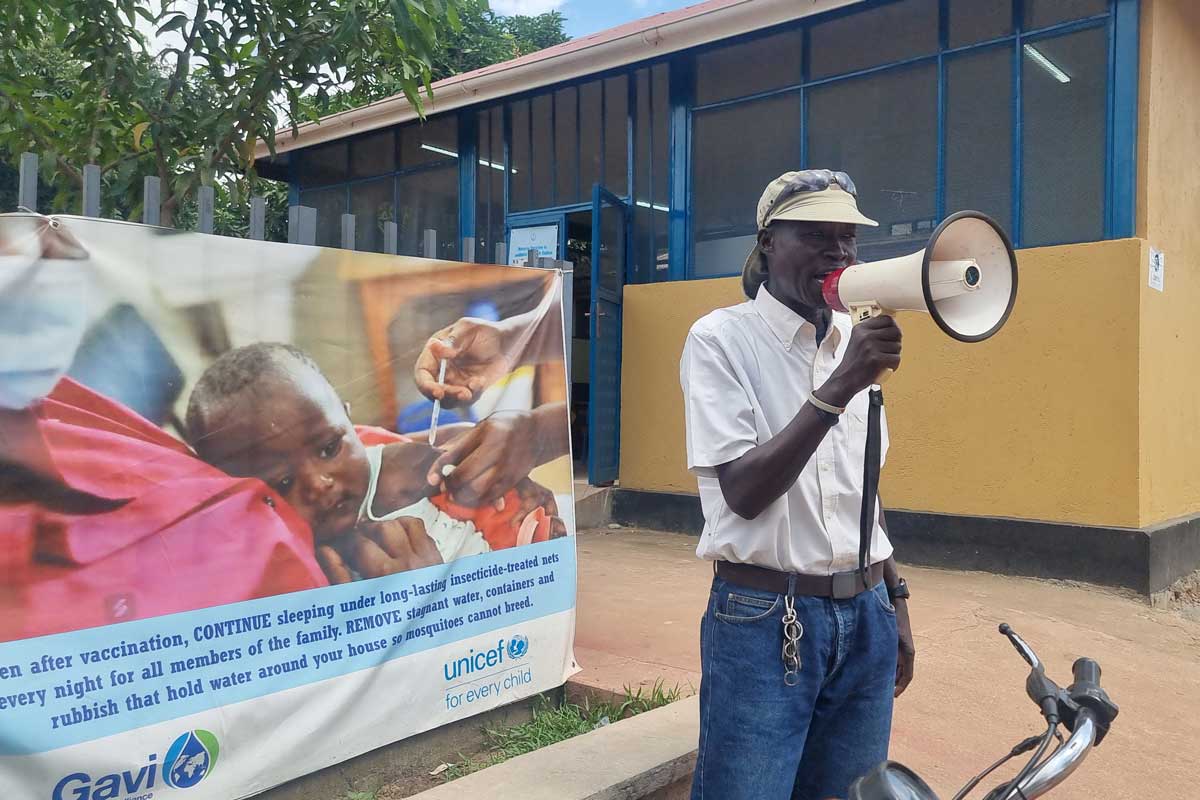
The word on the streets
Abiah James Karaba has been a community mobiliser for five years, working in areas outlying the capital, like Gorom, Rajaf, Manghateen, Jebel-Timan and along Nimule Road.
“I start my work at 9am, explaining the malaria vaccine with a microphone on the road, in markets, at bus stations, and even inside buses,” Karaba shares. “Girls and mothers are very engaged, asking questions like when the vaccine was introduced, how it’s given and where they can find it.”
He explains that, due to the temperature requirements for the malaria vaccine, it is available at health centres.
“I tell them to go to Al Sabbah Hospital, Juba Teaching Hospital, Kuwait Hospital, Kator Hospital and Malekia Hospital, and they go. When I visit the centres, I see many mothers queuing up. Parents are very interested in the malaria vaccine because malaria is such a big problem in South Sudan.”
Karaba recounts a heartbreaking encounter during his mobilisation efforts: “In Nimra Talata, I met a beautiful 16-year-old girl suffering from polio. Both her legs and arms were folded, and she could only be carried. When I asked what happened, I was told her father didn’t believe in vaccines and had forbidden his wife from vaccinating her. It broke my heart."
He also shared the story of a five-year-old child in Kor-Bou, whose parents delayed bringing the child for a polio vaccine. “I told them, we are always on the streets talking about polio vaccines. Now, with the malaria vaccine, bring your children and protect them. Let’s save these children from preventable diseases.”
Have you read?
Transport blues
If enthusiasm for the vaccine is only a good thing, it also means vaccinators are run off their feet. The lack of transportation is a persistent irritant.
“We don’t have transport, so we sometimes walk long distances just to come and vaccinate these children with the malaria vaccine,” says Elizia.
“We want to understand how the children fare after three months. When parents come for the second dose, we ask them how their child reacted. Around 85% of them say their child was normal and playing as usual. But walking long distances to bring the vaccines is exhausting."
More from Winnie Cirino
Recommended for you
